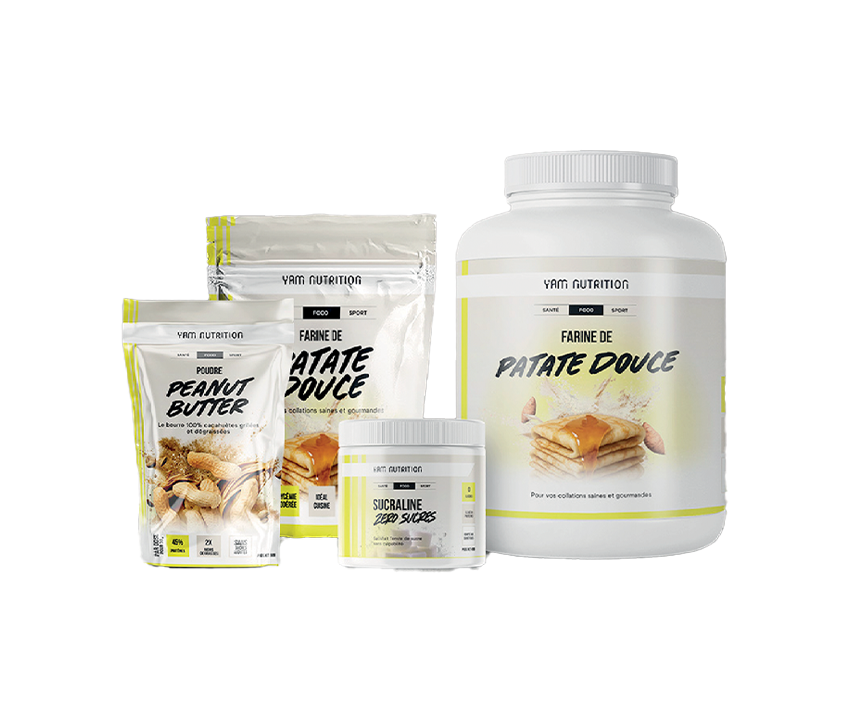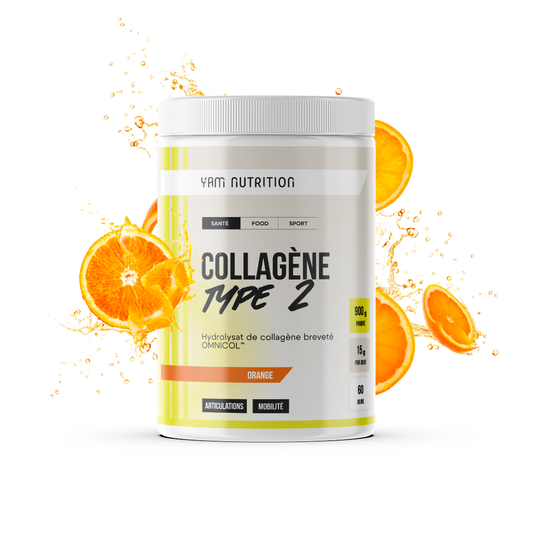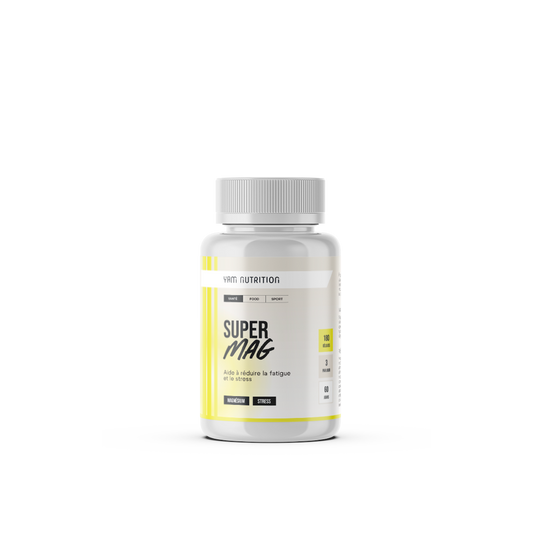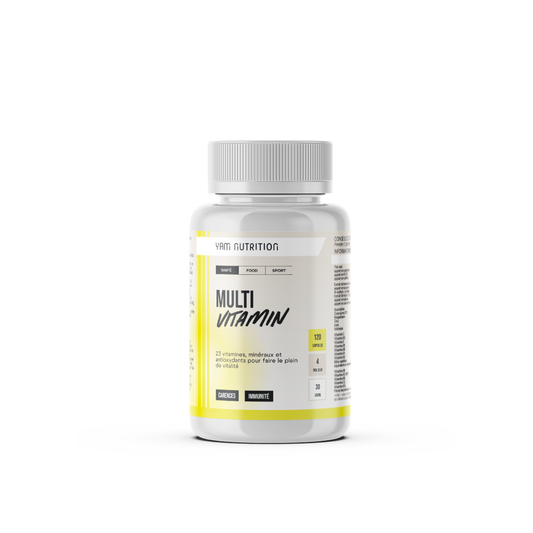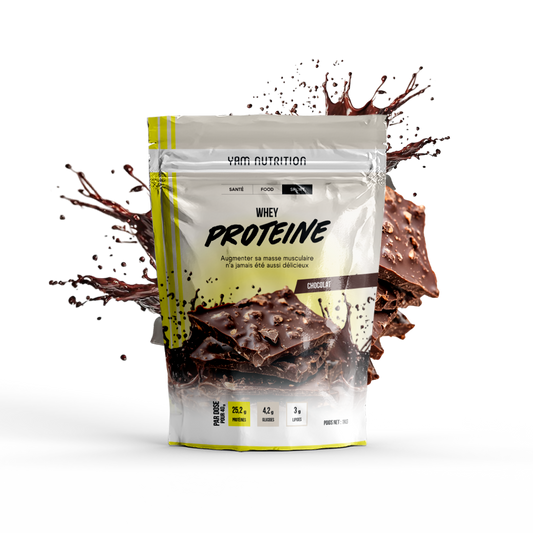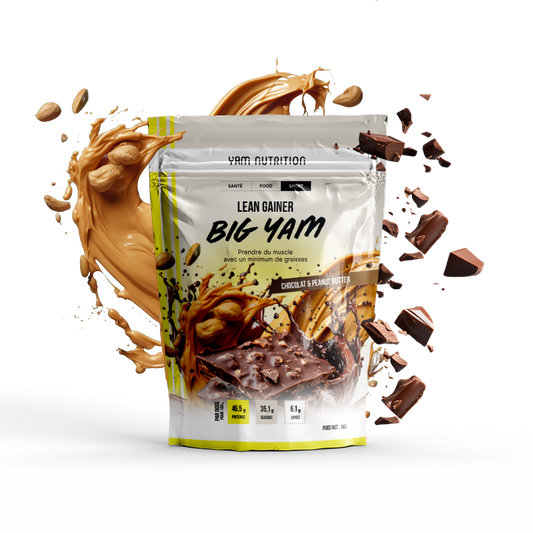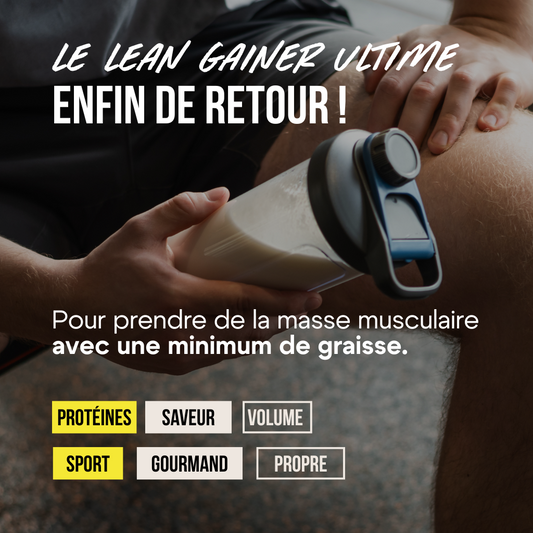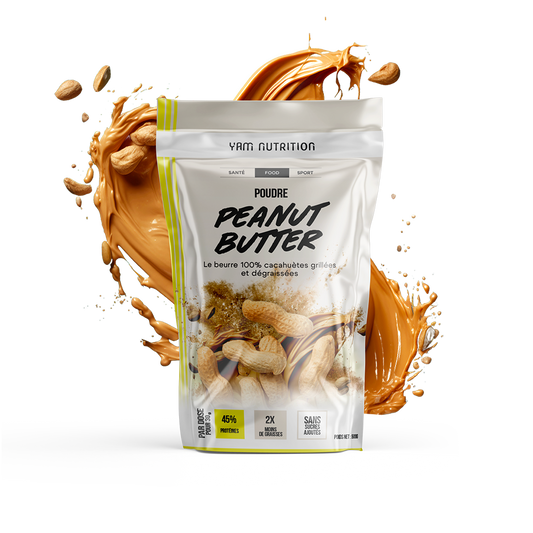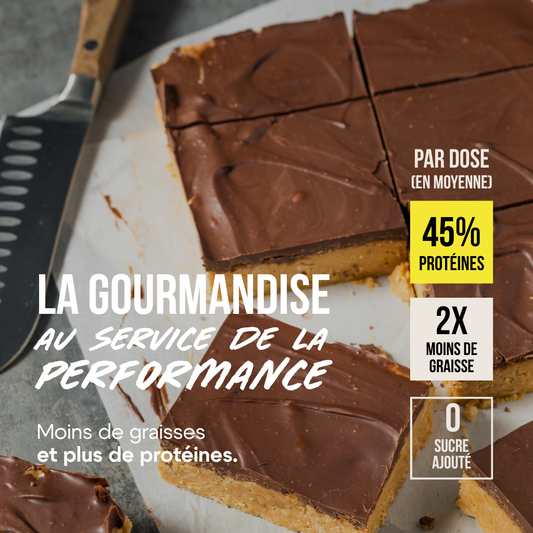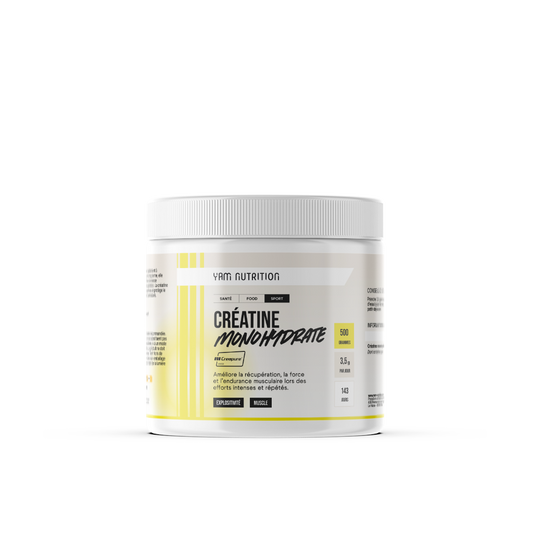Optimizing Nutrition Around Strength Training
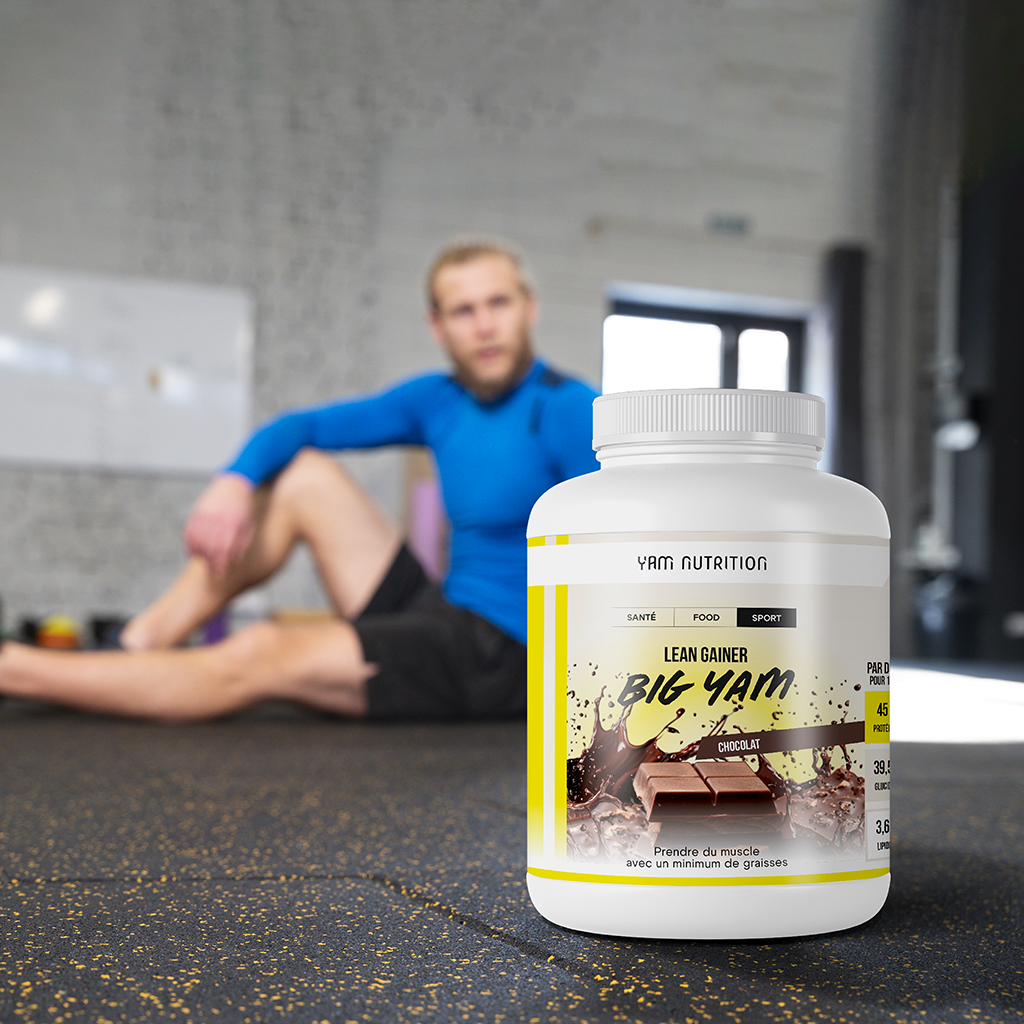
Sommaire
- Glycogen, your body's primary muscle energy reserve during training
- Your glycogen stores will help you benefit from a good weight training or cardio session.
- Big Yam is a natural nutritional supplement made from sweet potato flour and whey.
- Muscle glycogen is essential for recovery and energy release
- Protein in your diet contributes to muscle growth after training
For athletes, whether they practice resistance sports ( bodybuilding , powerlifting, weightlifting) or endurance sports, nutrition will always be at the heart of their athletic performance. Indeed, the question of energy substrates (the nutrients which result in the release of energy) is at the center of sports training, in terms of duration and intensity. And if carbohydrates are always the primary source of energy, the frequency of these nutritional intakes, before, during and after training, often represents the key between an athlete who benefits 100% from the exercises performed and another athlete who eats too randomly. Carbohydrate intake before training will condition the body's ability to release enough of energy while the restocking of muscle and liver glycogen will condition the quality of post-exercise recovery.
OMNICOL™ Patented Collagen Hydrolysate A complex of 23 vitamins, minerals and antioxidants to boost your vitality Building muscle mass has never been so delicious
Collagen Type 2 Powder
Sale price
From 49,90 €
Multivitamin
Sale price
29,90 €
Whey Protein
Sale price
From 37,90 €
Glycogen, your body's primary muscle energy reserve during training
Glycogen is an energy reserve in the form of glucose chains found in muscle mass. This energy reserve is used during training to synthesize ATP during exercise. Naturally, your muscle glycogen stores are your first energy source since glucose is also the first molecule to be used by your fibers to make ATP. If your muscles immediately draw on their glycogen stores, replenishing these reserves takes much longer. In fact, it is not uncommon for a maximum glycogen replenishment to take 48 hours. Conversely, it is not uncommon to empty 60 to 80% of muscle glycogen during intense weight training or endurance training. However, when your diet provides enough carbohydrates at each meal, restocking the glycogen does not pose any particular problem. If you have 3 or 4 main meals, the majority of muscle and liver glycogen will be replenished.
Your glycogen stores will help you benefit from a good weight training or cardio session.
However, an additional intake of carbohydrates a few hours before training will allow you to further optimize your glycogen stores. However, make sure to leave at least three and a half to four hours between your carbohydrate intake and your exercise session so that you can train on an empty stomach. After training, nutritional intake of carbohydrates and water to rehydrate you is absolutely essential. To improve your recovery, we always advise you to take a good source of carbohydrates with your protein. Indeed, this is when your body will need carbohydrates the most since it is the first nutrient to take in to replenish your reserves of glycogen. Muscle growth seems secondary to the need to replenish your energy reserves. Who among you has never done a workout without fully replenishing your carbohydrate reserves? Indeed, this type of workout is unlikely to give you a lot of energy or strength, even if you take creatine.
Big Yam is a natural nutritional supplement made from sweet potato flour and whey.
In any case, it is on this principle that Yam Nutrition developed Big Yam. It is simply a combination of sweet potato flour with whey protein. Sweet potato flour has a slow assimilation of its carbohydrates, a natural and optimal carbohydrate source for optimal glycogen storage. Big Yam provides you with the carbohydrates necessary for energy synthesis during exercise with the amino acids and peptides in Whey. We can therefore see Big Yam as a natural nutritional element rather than a Gainer as we knew them previously. Big Yam does not provide you with overdoses of calories and carbohydrates (no maltodextrin) but it will help you store good calories and energy, before or after training.
Muscle glycogen is essential for recovery and energy release
As you probably know, restocking muscle and liver glycogen after training is a priority for your post-exercise recovery. Protein synthesis will come next. Hypertrophy depends not only on the presence of amino acids but also on the energy available to do so. muscle growth Post-workout recovery continues for at least three days, which explains why energy needs to be present to recover and compensate for muscle gain, just as much as your carbohydrate intake is needed for pre-workout energy. In this case, essential carbohydrate intake will be just as necessary as protein and amino acid intake.
Remember that post-exercise recovery absolutely requires carbohydrate intake before anything else. Even a protein shake will be metabolized into glucose before its amino acids are used to rebuild your muscle fibers. Rebuilding glycogen is a top priority for your body since glucose is your primary energy reserve. Dietary protein will then be used to strengthen your muscle fibers. However, post-exercise recovery and hypertrophy are physiological phenomena that can last at least 48 hours. This is why your protein intake must be constant and regular over time, without necessarily becoming a priority over carbohydrates.
Protein in your diet contributes to muscle growth after training
Dietary proteins are building blocks because they contain the amino acids that allow us to make our own proteins. In most cases, it will be better to take as many carbohydrates as protein after training. However, if you are cutting or looking to lose weight, a post-workout protein shake is a good idea. Before your weight training session, take a protein can contribute to your overall 24-hour nutritional intake, but it would be a shame to use glucoforming amino acids as an energy source when carbohydrates can do it more simply.
In any case, remember that your meals are essential. They guarantee your progress in terms of muscle, strength, and endurance. They must imperatively contain slowly assimilated carbohydrates with a source of protein and quality fatty acids.
YAM Nutrition
Eric MALLET
Spécialiste en Nutrition Sportive
